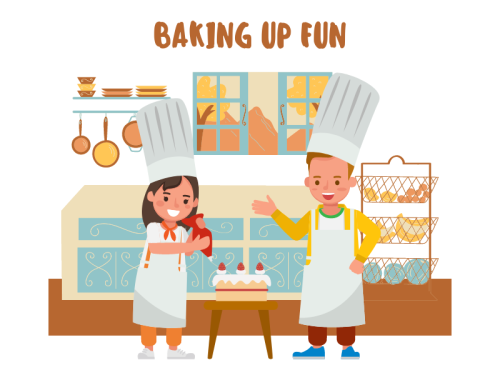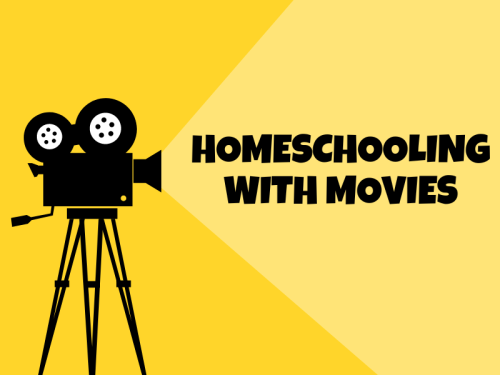by Bruce Cabell
Teacher/Author/Creator
Writing Tip #6- Poetry
This month, I'm taking a break from fictional, informative, and opinion writing and expressing my thoughts about Poetry.
First, let's begin with my definition:
Definition: Poetry is an art form that expresses one's individuality through creativity, inner feelings, and thoughts.
I believe there isn't a right or wrong way to compose a poem. Teaching this viewpoint would be enjoyable as it would inspire many young readers and writers. In addition, children who hesitate reading pages in a book or writing stories on paper may find the pleasure of reading and writing poetry since it's more manageable.
As a former classroom teacher, I enjoyed teaching the process of writing a poem from beginning to end. Giving my students the freedom to ignore the rules of poetry as you would in a Free Verse Poem was quite beneficial. Additionally, students who struggled with writing found poetry less threatening and enjoyed the chance to write without restrictions.
However, I know there is a time to teach poetry and its rules. Just for starters, we have rhythm, rhyme, meter, and word choice and if I dare to list more, you'd be able to hear your children complain or moan and groan. ☺ If you decide to compose poetry at home, I'd advise you to start with a unit on Free Verse. Many famous poems are written this way.
Now, it doesn't surprise me that poetry is absent from the Common Core Standards under writing. But I have to ask myself, "WHY?" During the school year, if you follow the Common Core, you have to teach narrative, informative/explanatory, and opinion piece writing. Keeping this in mind, we have to remember that many poems are written to persuade and inform too. Furthermore, authors write poetry to share personal stories so there is no need to worry over the decision of teaching it. Children need poetry as an outlet to cope with their world as well as enjoy the beauty of the written word.
Please take the time to read and write poetry. Give your children several chances to strengthen and share their creative minds with others. It will be one of their favorite units. If you decide to immerse your children into poetry, try this fun activity. They will have a BLAST!
1) First, read and discuss many children's poems from well-known authors.
2) Select a favorite and record it on notebook paper or chart paper. Please make sure you leave space under each line. This space will be used for your written response.
3) Next, read one line at a time and write your response to it.
4) Once completed, have your children read the poem (one line at a time) and you read your written response. This will demonstrate that you're having a conversation or dialogue with the character or author.
5) If needed, model additional examples. When ready, give your children an opportunity to try Poetic Dialogue. Have 3-5 poems ready for them to select a favorite.
6) Last, share and have tons of fun.
Note: Put an assortment of poems in your writing center at home for children to practice Poetic Dialogue. For younger children, find poems that are short in length until they've had plenty of practice.
Below is an example of Poetic Dialogue. My written response is marked with an "R."
As Soon as Fred Gets Out of Bed
by Jack Prelutsky
As soon as Fred gets out of bed,
R- What time does Fred get out of bed?
his underwear goes on his head.
R- No Fred, not your head!
His mother laughs, "Don't put it there,
R- I'm laughing too and I can't stop.
a head's no place for underwear!"
R- Fred's bottom is a place for his underwear.
But near his ears, above his brains,
R- And above his nose and mouth.
is where Fred's underwear remains.
R- I'm glad I'm not Fred!
Bruce Cabell is a teacher, author, and creator. He was a classroom teacher for over 27 years. He taught kindergarten, first, and third grade in Connecticut. Bruce has mentored numerous young teachers as well as modeled many writing strategies and skills for classroom teachers. His passion for writing has resulted in his first published creation, Writing Organizer Fold-Outs for grades 2-5. Visit Creative Teaching Press at www.creativeteaching.com to view these wonderful all-in-one resource writing tools.
In addition, to learn more about Bruce, visit him on LinkedIn.
Teacher/Author/Creator
Writing Tip #6- Poetry
This month, I'm taking a break from fictional, informative, and opinion writing and expressing my thoughts about Poetry.
First, let's begin with my definition:
Definition: Poetry is an art form that expresses one's individuality through creativity, inner feelings, and thoughts.
I believe there isn't a right or wrong way to compose a poem. Teaching this viewpoint would be enjoyable as it would inspire many young readers and writers. In addition, children who hesitate reading pages in a book or writing stories on paper may find the pleasure of reading and writing poetry since it's more manageable.
As a former classroom teacher, I enjoyed teaching the process of writing a poem from beginning to end. Giving my students the freedom to ignore the rules of poetry as you would in a Free Verse Poem was quite beneficial. Additionally, students who struggled with writing found poetry less threatening and enjoyed the chance to write without restrictions.
However, I know there is a time to teach poetry and its rules. Just for starters, we have rhythm, rhyme, meter, and word choice and if I dare to list more, you'd be able to hear your children complain or moan and groan. ☺ If you decide to compose poetry at home, I'd advise you to start with a unit on Free Verse. Many famous poems are written this way.
Now, it doesn't surprise me that poetry is absent from the Common Core Standards under writing. But I have to ask myself, "WHY?" During the school year, if you follow the Common Core, you have to teach narrative, informative/explanatory, and opinion piece writing. Keeping this in mind, we have to remember that many poems are written to persuade and inform too. Furthermore, authors write poetry to share personal stories so there is no need to worry over the decision of teaching it. Children need poetry as an outlet to cope with their world as well as enjoy the beauty of the written word.
Please take the time to read and write poetry. Give your children several chances to strengthen and share their creative minds with others. It will be one of their favorite units. If you decide to immerse your children into poetry, try this fun activity. They will have a BLAST!
Poetic Dialogue
1) First, read and discuss many children's poems from well-known authors.
2) Select a favorite and record it on notebook paper or chart paper. Please make sure you leave space under each line. This space will be used for your written response.
3) Next, read one line at a time and write your response to it.
4) Once completed, have your children read the poem (one line at a time) and you read your written response. This will demonstrate that you're having a conversation or dialogue with the character or author.
5) If needed, model additional examples. When ready, give your children an opportunity to try Poetic Dialogue. Have 3-5 poems ready for them to select a favorite.
6) Last, share and have tons of fun.
Note: Put an assortment of poems in your writing center at home for children to practice Poetic Dialogue. For younger children, find poems that are short in length until they've had plenty of practice.
Below is an example of Poetic Dialogue. My written response is marked with an "R."
As Soon as Fred Gets Out of Bed
by Jack Prelutsky
As soon as Fred gets out of bed,
R- What time does Fred get out of bed?
his underwear goes on his head.
R- No Fred, not your head!
His mother laughs, "Don't put it there,
R- I'm laughing too and I can't stop.
a head's no place for underwear!"
R- Fred's bottom is a place for his underwear.
But near his ears, above his brains,
R- And above his nose and mouth.
is where Fred's underwear remains.
R- I'm glad I'm not Fred!
Poetry Poem
by Bruce Cabell
The beauty of poetry
And its written word
Should be composed
And should be heard.
It must be taught
I have no doubt
Since it's too important
To leave it out.
My teacher advice
Is not to fret
Because writing poetry
Is a child's outlet.
So take a moment
To read my views
Why children should read
And write poetry too.
When writing poetry
They're sharing with others
Their life experiences
From one to another.
And it's the perfect medicine
To cure and heal
The strong emotions
Each child feels.
The emotions they have
They'll tend to hide
Until writing poetry
Unlocks their feelings inside.
They'll also learn
How to be
A better writer
In poetry.
Plus writing poetry
And its many designs
Will strengthen each child's
Creative mind.
The more they practice
To create and compose
The more each mind
Will remarkably grow.
So if you're ready
For children to shine
Then immerse each one
Into POETRY TIME!
by Bruce Cabell
The beauty of poetry
And its written word
Should be composed
And should be heard.
It must be taught
I have no doubt
Since it's too important
To leave it out.
My teacher advice
Is not to fret
Because writing poetry
Is a child's outlet.
So take a moment
To read my views
Why children should read
And write poetry too.
When writing poetry
They're sharing with others
Their life experiences
From one to another.
And it's the perfect medicine
To cure and heal
The strong emotions
Each child feels.
The emotions they have
They'll tend to hide
Until writing poetry
Unlocks their feelings inside.
They'll also learn
How to be
A better writer
In poetry.
Plus writing poetry
And its many designs
Will strengthen each child's
Creative mind.
The more they practice
To create and compose
The more each mind
Will remarkably grow.
So if you're ready
For children to shine
Then immerse each one
Into POETRY TIME!
Bruce Cabell is a teacher, author, and creator. He was a classroom teacher for over 27 years. He taught kindergarten, first, and third grade in Connecticut. Bruce has mentored numerous young teachers as well as modeled many writing strategies and skills for classroom teachers. His passion for writing has resulted in his first published creation, Writing Organizer Fold-Outs for grades 2-5. Visit Creative Teaching Press at www.creativeteaching.com to view these wonderful all-in-one resource writing tools.
In addition, to learn more about Bruce, visit him on LinkedIn.





